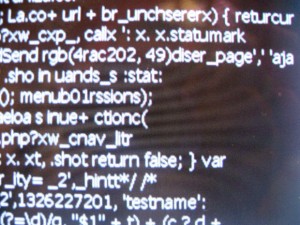 It’s nothing new for a presidential candidate to get creative when going after the youth vote. Republican candidate Rand Paul is looking specifically at the young tech community, as evidenced by a recent coding event he sponsored. Re/code covered the event in a recent article titled “Coding for Liberty: On the Ground at Rand Paul’s Presidential Hackathon.”
It’s nothing new for a presidential candidate to get creative when going after the youth vote. Republican candidate Rand Paul is looking specifically at the young tech community, as evidenced by a recent coding event he sponsored. Re/code covered the event in a recent article titled “Coding for Liberty: On the Ground at Rand Paul’s Presidential Hackathon.”
Re/code’s Noah Kulwin writes, “It should be said up front that Rand Paul hates net neutrality. He has taken a position of deafening silence on same-sex marriage and so-called ‘religious freedom’ laws, and he believes that the Uber-endorsed Affordable Care Act will send America into economic ruin. These are not views shared by most of Silicon Valley, whose most prominent figures gravitate toward elite Democratic circles. Paul, the junior Republican senator from Kentucky, is also perhaps Congress’s best-known advocate against bulk NSA surveillance. You might remember his 11-hour filibuster last month in protest of the Patriot Act, or his condemnation of the prison system as ‘the new Jim Crow.’ He has also introduced criminal justice reform legislation with New Jersey Democrat Cory Booker, and he is attached to a pro-medical marijuana bill. He likes to talk up his libertarian-leaning brand of conservatism, an earthier version of the traditional ‘less government is better government’ Republican line. These innovation-friendly, anti-establishment politics, so the thinking goes, play well in Silicon Valley. Virtually everyone at #HackForRand brings up privacy rights and the NSA within ten seconds of explaining why they’re here, and the goal of the hackathon — a 24-hour marathon competition of programming judged by a three-person panel — is to work on building an app that advances ‘liberty and privacy.’ The ‘liberty and privacy’ directive comes from Ron Schnell, the CTO of Rand Paul’s campaign, whose job it is to build a tech-soaked Republican political machine that even Silicon Valley can get behind.”
Politics aside, it is always encouraging to see people using their influence to not just promote coding, but to get youth involved through innovative means.
At CodeRev Kids, we also believe in using an innovative approach to engage youth with coding. Our after school programs are customized to fit the specific needs of your child. Our personalized programs emphasize computational thinking, which encompasses a wide range of programming concepts and languages. Our lessons build upon one another, and we adjust starting points to each student’s level of expertise.
We are known for saying we are the most educational tech camp out there, but we also keep the focus on having fun. By doing this, students stay engaged while learning to blend creativity with technology.
Check out our after school programs and coding camps today!

 We all know that there’s an incredibly rich future in coding, but one thing that’s interesting about this trend is the gender difference. While historically there have been more men than women in tech roles, we’re seeing more and more women get the opportunities they need to get started in these lucrative fields. In Seattle, something really interesting is going on.
We all know that there’s an incredibly rich future in coding, but one thing that’s interesting about this trend is the gender difference. While historically there have been more men than women in tech roles, we’re seeing more and more women get the opportunities they need to get started in these lucrative fields. In Seattle, something really interesting is going on. Does your kid love science and math? Are they proud to be interested in the latest technology? Are you looking to throw them a birthday party they won’t forget? Then consider these cool ideas for unique birthday celebrations.
Does your kid love science and math? Are they proud to be interested in the latest technology? Are you looking to throw them a birthday party they won’t forget? Then consider these cool ideas for unique birthday celebrations.




 Academy designed the STEMposium to encourage learning from mistakes, and instilling belief in continuing to try things until something works.
Academy designed the STEMposium to encourage learning from mistakes, and instilling belief in continuing to try things until something works.